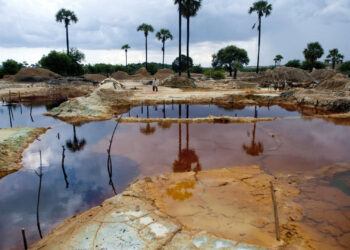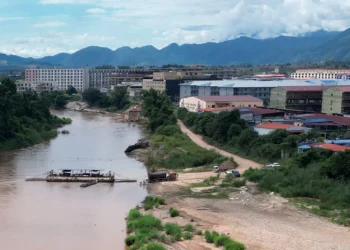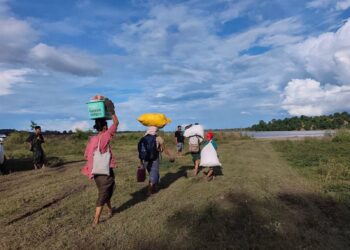Myanmar’s army chief Min Aung Hlaing has claimed young people are being tricked into supporting the resistance against the military, as anti-coup forces chalk up unprecedented advances.
Three years after seizing power in a coup, the military regime has suffered a series of major losses to an alliance of ethnic minority armed groups and anti-coup forces that launched a surprise offensive at the end of October last year.
Min Aung Hlaing was speaking to thousands of troops who had assembled for Armed Forces Day, the military’s annual show of force.
He said it was “disheartening to witness youths becoming scapegoats of insurgents, misled by false narrative propaganda through media sabotage” and accused unnamed ethnic armed groups of “destroying the path towards forming a union based on democratic values and federalism”.
Min Aung Hlaing claimed the military was “working to restore peace and stability” and there needed to be unity.
The parade, in the remote and purpose-built capital of Naypyidaw, took place at sunset for the first time since it started being held there in 2006. Officials blamed the hot weather associated with an El Nino weather pattern.
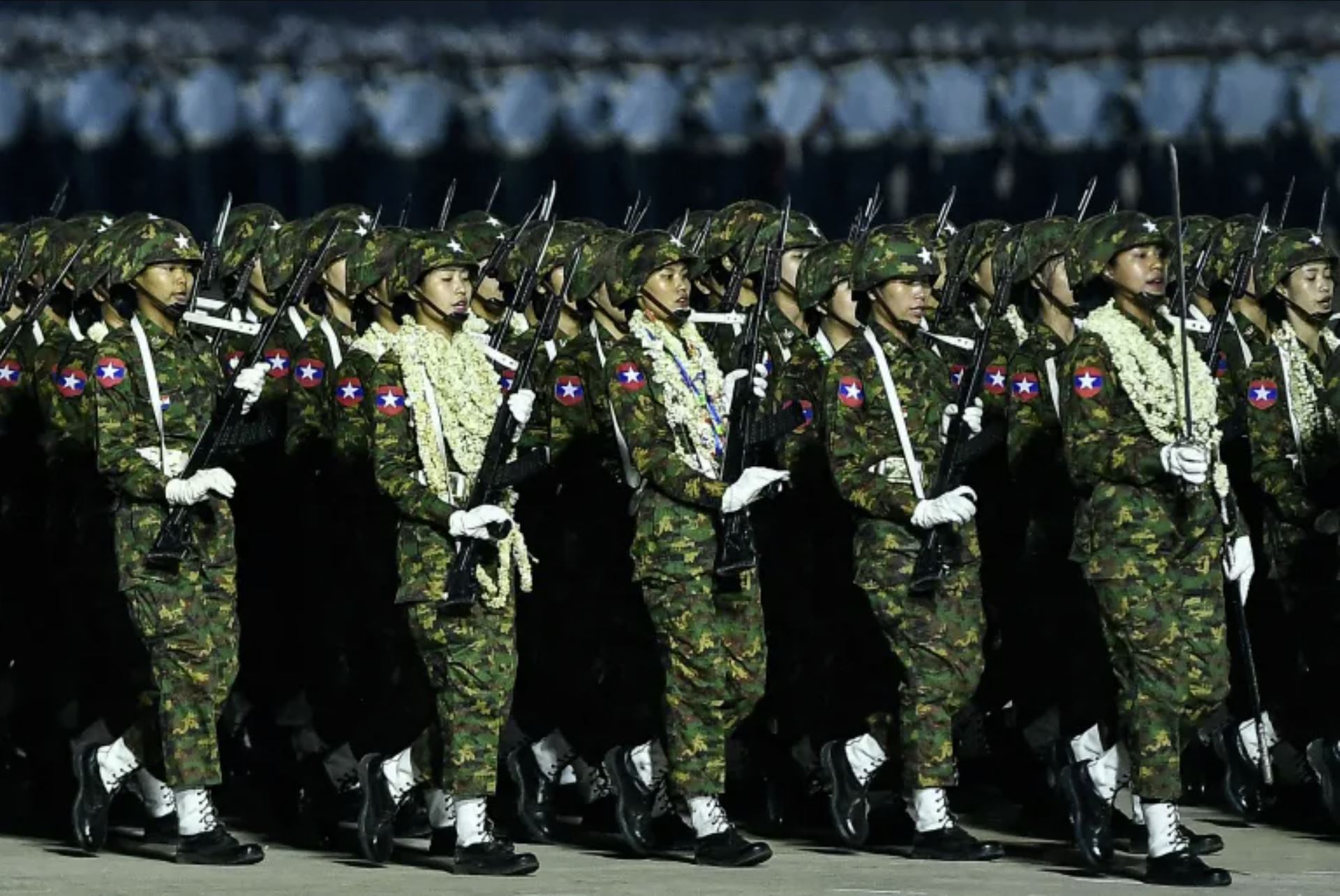
Military helicopters and fighter jets took part in aerial displays, and Min Aung Hlaing’s wife was seen placing garlands of flowers on soldiers.
Alexander Fomin, Russia’s deputy minister for defence was again guest of honour with the two countries deepening ties since the coup.
More than two dozen Russian military commanders and defence officials were also given honorary titles for their “excellent performances in international military cooperation measures in order to build a modern Tatmadaw” including Navy chief Nikolai Yevmenov, who was removed from his post this month, the Commander of the Pacific Fleet Viktor Liina, and those involved in shipbuilding and the supply of ammunition and artillery.
The Tatmadaw is the official name of the Myanmar military.
‘Ongoing atrocities’
Min Aung Hlaing led a coup against the government of civilian leader Aung San Suu Kyi in February 2021 claiming without evidence that there had been election fraud.
The power grab triggered mass protests and a nationwide civil disobedience movement, but the military’s brutal response fuelled armed resistance, as thousands of people formed People’s Defence Forces (PDFs) and others fled to jungles and mountains in remote border areas to make common cause with ethnic armed groups who had spent decades fighting for autonomy.
Since anti-coup forces launched Operation 1027 last year, they have made gains in northern Shan and eastern Kayah states and are also taking territory in western Rakhine state. Other regions have also seen renewed conflict.
More than 2 million people have been displaced by the conflict, according to the United Nations, while monitoring group the Assistance Association for Political Prisoners says 4,791 civilians have been confirmed dead.
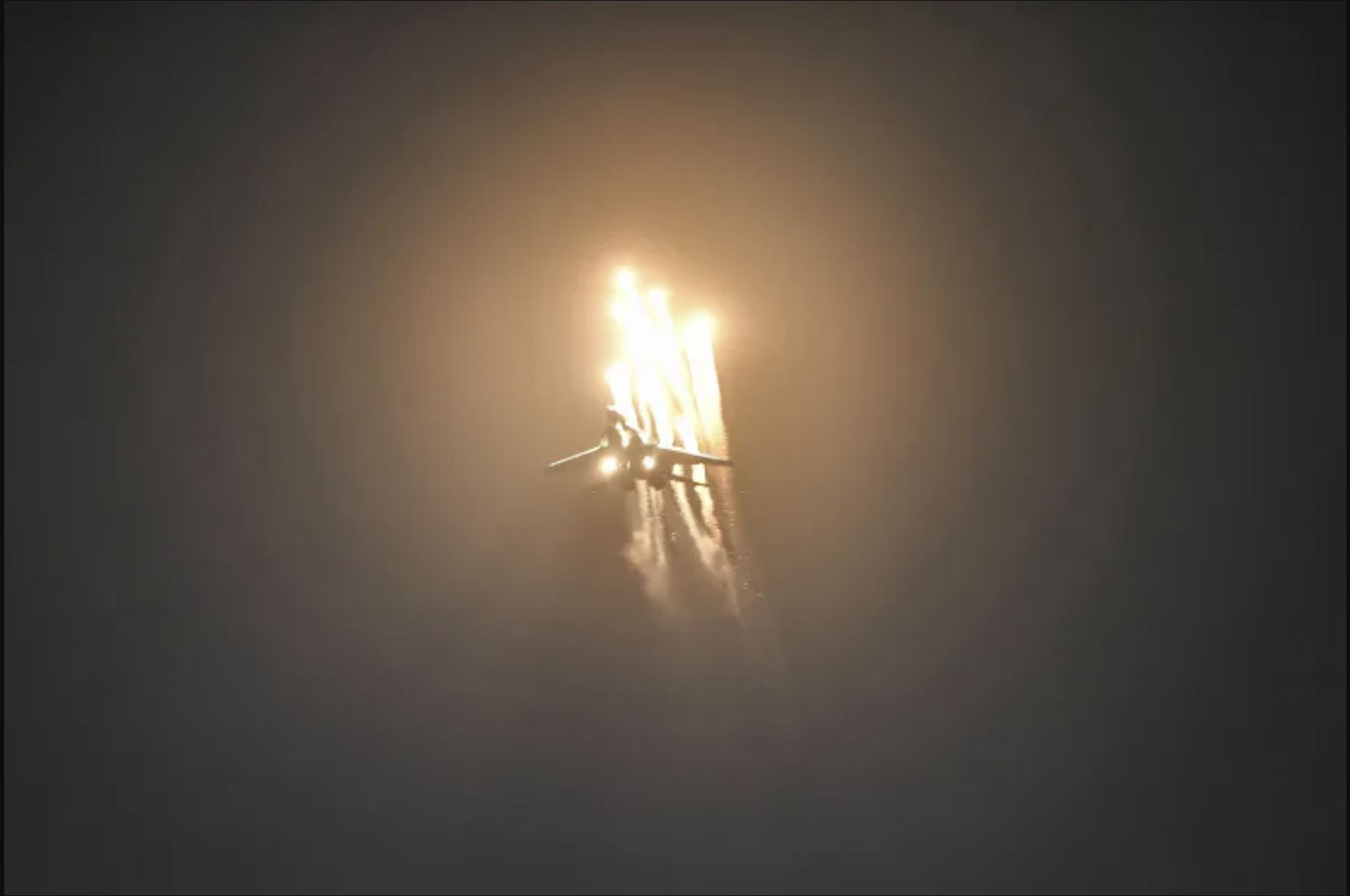
The military last month announced that it would activate a long-dormant conscription law, which will require all men aged 18-35 and women aged 18-27 to undertake two years of military service.
Min Aung Hlaing said the draft was a “necessity”, but it prompted thousands of potential recruits to try and flee the country, with the Thai embassy in Yangon struggling to cope with the number of people applying for visas.
In a statement to mark Armed Forces Day, Britain’s Minister for the Indo-Pacific Anne-Marie Trevelyan said people were suffering “horrendous acts of violence at the military regime’s hands”, while Canada’s embassy said it condemned “in the strongest possible terms the ongoing atrocities” perpetrated by the military, and it called for an arms and aviation fuel embargo.
In his speech, Min Aung Hlaing said the military was being targeted with “fake news” from international journalists and social media users, and accused “some powerful nations,” of trying to interfere with Myanmar’s internal affairs by helping armed anti-coup groups. He did not cite evidence.
The army chief also touched on the often talked about but still unscheduled elections.
Without offering a timeline, he said efforts to conduct new elections were under way, but claimed ethnic armed groups and PDF fighters were “deliberately engaging in disruptive actions to sabotage and delay” the process.
A state of emergency, in place since the coup, was extended in February for a further six months.
Armed Forces Day marks the day in 1945 when the army of Myanmar, then known as Burma, began its fight against the Japanese who had taken control of the country after driving out the British, the former colonial rulers.
Source: Aljazeera




